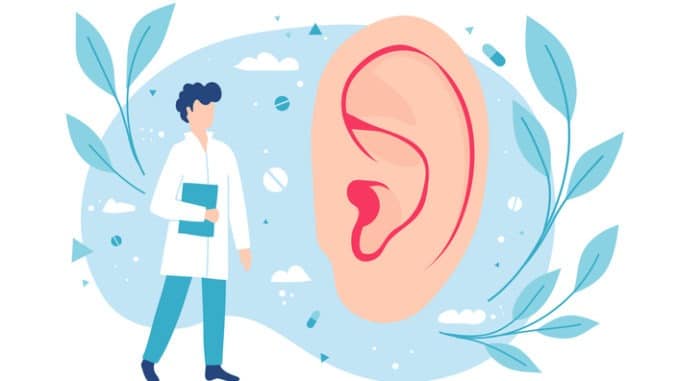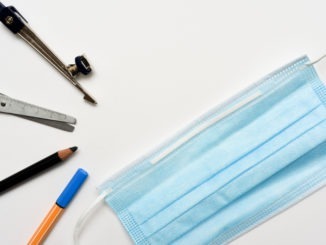
One-in-four deaf children are being taught by staff wearing face masks in UK schools, leaving many unable to understand their teachers, according to a survey
CREDIT: This is an edited version of an article that originally appeared on The Guardian
Charities have warned that deaf pupils will suffer academically without urgent action to provide more support and adjustments, as almost all deaf children rely on lip-reading to understand others.
The National Deaf Children’s Society (NDCS) surveyed more than 500 parents and found that 27% of deaf children were being taught by teachers wearing masks, with the figures rising to 49% for students in sixth form or college, and 34% in secondary school.
The NDCS chief executive, Susan Daniels, said, “Teachers across the country are battling to educate the next generation and keep everyone safe in extremely challenging circumstances. However, the UK’s 50,000 deaf children are part of that next generation and, if face masks or coverings are used in class, it must not be at the expense of their education, life chances and mental wellbeing.”
Guidance from the Department for Education states that face masks in classrooms should be avoided because of the ‘negative impact on learning and teaching’. Last month the government announced 250,000 clear face masks would be made available for NHS staff and care workers to support people who use lip-reading. Contact, a charity for families with disabled children, said it would welcome these being distributed to schools as well. “We would be concerned that mask-wearing is hampering a child’s ability to communicate and learn,” said Una Summerson, Contact’s head of policy.
Clear accessible masks
Kate, who gave her first name only, lives in Nottinghamshire. Her 11-year-old daughter, Anna, has progressive hearing loss and uses hearing aids. Since starting secondary school in September, Anna has felt isolated by both teachers and fellow students wearing face masks.
“She came out of school in tears two days running as she hadn’t understood anything in tutor time. Anna felt completely out of the loop, and had no idea what was being said. I’ve no doubt her education will suffer,” said Kate.
“Now the guidelines state masks should be worn in communal areas of school by all children, this makes social interaction impossible. A shared lunchtime is a nightmare. If clear, accessible masks could be used in schools it would definitely be better.”
The NDCS survey revealed only a third of parents were included in discussions around face masks in schools, so the charity is calling for better communication, as well as further adjustments – such as radio aids – to ensure deaf students are not disadvantaged. It also says UK governments must ensure that guidance clearly explains the impact of face coverings on deaf children, and ensure schools have the funding needed to make adjustments.
Access to education
“We understand that schools need to take appropriate measures in response to coronavirus, but it is vital that these do not deprive some children of their access to education,” Stephen Kingdom, the campaigns manager of the Disabled Children’s Partnership, which supports NDCS’s findings, said.
A DfE spokesperson said, “We have always been clear that face coverings can have a negative impact on teaching, and they should be avoided in the classroom. This is especially true when teaching children with hearing impairments or other additional needs who may rely on lip-reading or facial expression to communicate.
“The vast majority of schools are following our guidance to reduce the risk of transmission, including physical distancing between staff and pupils and increased ventilation in classrooms where possible.”



Be the first to comment